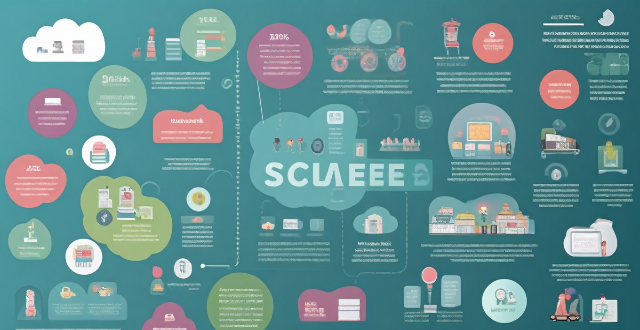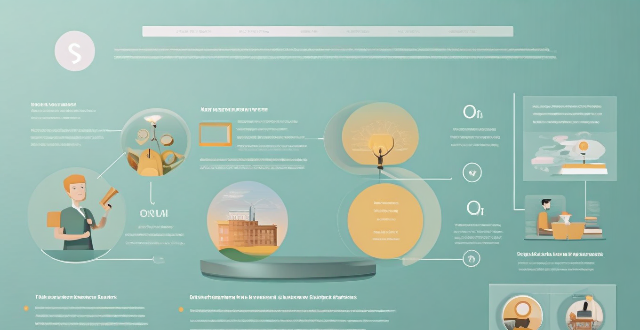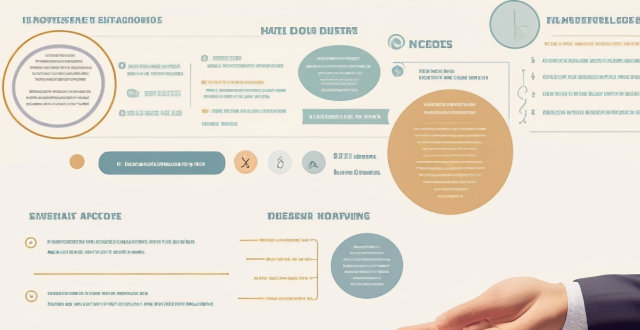Transparency Score

How can I improve my credit score and maintain good credit history ?
Maintaining a good credit score is vital for securing loans, mortgages, and even some jobs. To improve your credit score and maintain good credit history, consider the following tips: 1. Pay bills on time to avoid late payments that can significantly impact your credit score. 2. Avoid defaulting on loans by contacting the lender to discuss options if you're struggling to make payments. 3. Keep balances low and increase credit limits to lower your utilization rate. 4. Keep old accounts open and space out applications for new credit to maintain a healthy length of credit history. 5. Diversify your types of accounts to show that you can handle different types of credit responsibly. 6. Limit hard inquiries and apply for credit only when necessary. 7. Check your credit report regularly to ensure there are no errors or fraudulent activity dragging down your score. 8. Use credit wisely and monitor your credit score to keep an eye on progress. 9. Educate yourself on how FICO scores work and the factors that influence them to make more informed financial decisions. By following these guidelines, you can establish and maintain a strong credit profile that will serve you well in your financial life.

How can companies improve their ESG scores ?
Improving a company's Environmental, Social, and Governance (ESG) scores requires a comprehensive approach to business operations that emphasizes sustainability, ethical behavior, and transparency. Strategies for enhancing each aspect of the ESG framework are outlined in this guide. In the environmental dimension, companies should reduce their carbon footprint through energy efficiency, renewable energy, and green buildings; implement sustainable sourcing practices such as supply chain audits and resource stewardship; and manage waste through recycling programs and hazardous waste disposal. In the social dimension, workplace standards should be established, including fair wages, diversity and inclusion, and health and safety measures. Community engagement should also be prioritized through local investment, volunteerism, and transparency. Consumer protection is another key area, with product safety, privacy, and customer service being important considerations. In the governance dimension, board diversity and independence should be ensured through independent directors, committees, and ethical conduct policies. Transparency and accountability should also be maintained through regular ESG reporting, stakeholder engagement, and third-party audits. By focusing on these key areas, companies can improve their ESG scores and enhance their reputation, investor confidence, and long-term financial performance.

How do student loans impact credit scores ?
Student loans can significantly impact credit scores, positively throughStudent loans can significantly impact credit scores, positively through diversified credit mix, and Best practices for managing student loans include making payments on time, keeping balances low, and exploring forgiveness or repayment options to protect and enhance financial standing.

How do I qualify for a mortgage loan ?
This article provides a detailed guide on how to qualify for a mortgage loan, highlighting key factors that lenders consider such as income, credit score, debt-to-income ratio, employment history, and assets and liabilities. It also outlines steps to take in order to increase chances of success including checking your credit score, calculating your DTI, gathering financial documents, shopping around for lenders, getting pre-approved for a loan, finding a home within budget range, making an offer, and completing the closing process.

How does blockchain ensure decentralization and transparency ?
Blockchain technology ensures decentralization and transparency through a distributed ledger, consensus mechanisms like Proof of Work (PoW), Proof of Stake (PoS), and Delegated Proof of Stake (DPoS), node autonomy, immutable records via cryptographic hashing, public accessibility of the ledger, verifiable transactions using digital signatures, and smart contracts. These features create an environment resistant to manipulation and corruption, offering a paradigm shift in secure and accountable digital interactions.

How does DeFi differ from traditional finance ?
DeFi is a financial system based on blockchain technology and smart contracts, while traditional finance relies on intermediaries like banks. Key differences include centralization vs decentralization, accessibility, transparency, security, cost efficiency, and regulation. DeFi offers advantages such as wider accessibility, higher transparency, and lower fees, but also comes with risks. It's important to research and consult professionals before making financial decisions.

How do TCFD disclosures improve transparency and accountability in business practices ?
The Task Force on Climate-related Financial Disclosures (TCFD) was established by the Financial Stability Board (FSB) to develop a framework for companies to disclose information about their impact on, and from, climate-related risks. These disclosures play a crucial role in enhancing transparency and accountability in business practices. By adhering to TCFD recommendations, businesses are compelled to communicate openly about their strategies and plans related to climate change. This includes identifying and explaining the potential impact of climate change on their operations and disclosing any financial risks or opportunities that may arise due to climate change. Investors increasingly demand clarity on how companies are addressing climate change. TCFD disclosures provide this clarity, fostering trust among investors and other stakeholders. The TCFD framework sets clear benchmarks for disclosure, making it easier for stakeholders to assess a company’s performance against industry standards. This promotes comparative analysis and performance evaluation. As the TCFD gains momentum, companies are incentivized to comply not just for regulatory reasons, but also to maintain their reputation and competitive edge in the market. Knowing they must report on climate-related matters can push companies to innovate, seeking new ways to reduce environmental impacts and adapt to climate risks. With TCFD disclosures, companies are prompted to consider long-term implications of their actions, leading to more sustainable business models. The disclosures align businesses with the United Nations Sustainable Development Goals (SDGs), particularly those related to climate action and life on land. TCFD provides a global standard for reporting, ensuring that companies operating across multiple jurisdictions can be assessed consistently. Through TCFD disclosures, companies can share successful strategies and practices related to climate risk management, fostering a collaborative approach to addressing climate change. Disclosures can reveal areas where companies might need partners—whether in technology, research, or other sectors—to achieve their climate goals.

What is the difference between a regular contract and a smart contract ?
A regular contract and a smart contract differ in terms of their **nature**, **enforceability**, **cost**, **speed**, and **transparency**. Below are the key differences between these two types of contracts: ## Nature ### Regular Contract - Legal agreement between two or more parties. - Typically written in natural language (e.g., English). - Governed by local laws and regulations. ### Smart Contract - Self-executing contract with the terms directly written into code. - Deployed on a blockchain network. - Enforced by the underlying code and cryptographic protocols. ## Enforceability ### Regular Contract - Relies on legal institutions for enforcement (e.g., courts). - May involve mediation or arbitration processes. - Penalties for breach can be monetary or involve other forms of relief. ### Smart Contract - Autonomously executes when predetermined conditions are met. - Enforcement is decentralized and automated. - Penalties for breach are typically programmed into the contract logic. ## Cost ### Regular Contract - Can be costly due to legal fees, notary services, and potential litigation expenses. - Involves overhead of paper-based record keeping and manual processing. ### Smart Contract - Generally less expensive because it eliminates intermediaries. - Costs associated with blockchain transaction fees and contract deployment. ## Speed ### Regular Contract - Time-consuming process from negotiation to signing and execution. - Settlement times can vary widely depending on the complexity of the agreement. ### Smart Contract - Faster execution once the conditions are met. - Real-time settlements possible due to automation. ## Transparency ### Regular Contract - Limited transparency; only involved parties have access to the contract details. - Requires trust in the counterparty to disclose all relevant information. ### Smart Contract - High transparency; contract code and transactions are visible on the blockchain. - Trust is placed in the immutable and verifiable nature of the blockchain.

How can blockchain technology be used in voting systems to ensure transparency and fairness ?
Blockchain technology, known for its role in cryptocurrencies, can enhance voting systems by ensuring transparency, security, and fairness. It provides immutable record keeping, public verifiability, and a comprehensive audit trail. Blockchain also protects voters' identities, decentralizes the voting process, and automates vote counting. Implementing this technology requires designing the blockchain infrastructure, developing a user-friendly interface, testing, pilot programs, stakeholder education, and full implementation. However, challenges such as scalability, user adoption, legal and regulatory hurdles, and technical security must be addressed.

What is blockchain technology and how does it work ?
Blockchain technology is a decentralized, digital ledger that records transactions securely and transparently. It was originally designed for Bitcoin but has since been adapted for various applications. Key features include decentralization, transparency, immutability, and security. The technology works through transaction creation, broadcast, verification, block creation, consensus, addition to the blockchain, and perpetuation. Benefits include enhanced security, elimination of intermediaries, increased transparency, reduced costs, and improved efficiency. Blockchain technology has potential applications beyond cryptocurrency and could transform industries such as finance and supply chain management.

What ethical considerations are involved in vaccine distribution equity ?
Vaccine distribution equity is a crucial issue that requires careful consideration of ethical principles such as justice, utilitarianism, autonomy, and transparency. Justice demands that vaccines be distributed based on medical need rather than wealth or social status, while utilitarianism emphasizes maximizing overall well-being by prioritizing essential workers and those who can contribute most to society. Autonomy requires respecting individuals' choices about whether or not to receive a vaccine through informed consent and voluntary participation. Transparency is essential for building trust and promoting public confidence in vaccine distribution efforts through public communication and accountability mechanisms. Overall, ensuring equitable distribution of vaccines requires balancing these ethical considerations to promote fairness, maximize benefits, respect individual autonomy, and maintain transparency throughout the process.

How does cryptocurrency work ?
Cryptocurrency is a digital or virtual currency that uses cryptography for security, operating independently of a central bank. It allows direct transfers between individuals without intermediaries like banks. Key components include cryptography (public and private keys, encryption, decryption), blockchain technology (decentralization, transparency, immutability, consensus mechanism), mining (Proof of Work, Proof of Stake, mining rewards, network security), and smart contracts (automation, efficiency, security, transparency). These technologies work together to create a secure, decentralized, and transparent digital payment system with fast, low-cost, and borderless transactions while maintaining user privacy and security.

How can I build a strong relationship with my investors ?
The article emphasizes the importance of building a strong relationship with investors for the success of a business. It outlines several key strategies to achieve this, including communication, trustworthiness, collaboration, recognition, professionalism, and continuous improvement. The tips provided suggest that regular updates, transparency, active listening, fulfilling promises, integrity, partnership approach, joint decision making, appreciation, acknowledgement of success, punctuality, high-quality presentation materials, seeking learning opportunities, and creating a feedback loop are all crucial elements in fostering a positive relationship with investors. By following these guidelines, businesses can establish a strong foundation of trust, transparency, and collaboration that will lead to mutually beneficial relationships and ultimately contribute to the success of their ventures.

How does a co-signer affect my mortgage application ?
A co-signer is a person who signs a loan application along with the primary borrower. The co-signer agrees to take on the responsibility of repaying the loan if the primary borrower fails to do so. In this article, we will discuss how a co-signer affects your mortgage application. The credit score of both the primary borrower and the co-signer plays a significant role in determining the eligibility for a mortgage loan. A co-signer with a good credit score can improve the chances of getting approved for a mortgage loan. However, if the co-signer has a poor credit score, it may negatively impact the loan approval process. The income and debt-to-income ratio (DTI) of both the primary borrower and the co-signer are also important factors that lenders consider when evaluating a mortgage application. If the co-signer has a high income and low DTI, it can help strengthen the application and increase the chances of approval. On the other hand, if the co-signer has a low income or high DTI, it may negatively impact the loan approval process. Lenders also consider the employment history of both the primary borrower and the co-signer when evaluating a mortgage application. A stable employment history can demonstrate financial stability and reliability, which can positively impact the loan approval process. If the co-signer has a stable employment history, it can help strengthen the application and increase the chances of approval. The assets and liabilities of both the primary borrower and the co-signer are also taken into consideration by lenders when evaluating a mortgage application. If the co-signer has significant assets and few liabilities, it can help strengthen the application and increase the chances of approval. However, if the co-signer has significant liabilities or limited assets, it may negatively impact the loan approval process. In conclusion, a co-signer can have a significant impact on your mortgage application. Their credit score, income and DTI, employment history, assets, and liabilities are all factors that lenders consider when evaluating a mortgage application. It is important to choose a co-signer who has a good credit score, stable employment history, and low DTI to increase the chances of getting approved for a mortgage loan.

How can small businesses improve their credit management ?
Credit management is an essential aspect of running a successful business. It involves managing the company's debt, ensuring timely payments to vendors and suppliers, and maintaining a good credit score. Here are some tips on how small businesses can improve their credit management: 1. Set up a system for tracking invoices and payments. 2. Negotiate better terms with vendors and suppliers. 3. Pay bills on time. 4. Monitor your credit score regularly. 5. Keep personal and business finances separate. 6. Seek professional advice when needed.

Can I get a mortgage with bad credit ?
Getting a mortgage with bad credit is possible but may be more challenging and come with less favorable loan terms. To increase your chances, check your credit score, work on improving it, shop around for lenders, consider alternative options like FHA or VA loans, and be prepared to make a larger down payment.

How much down payment do I need to buy a house ?
This article discusses the factors affecting the down payment amount for buying a house, including credit score, type of mortgage, and price of the house. It also provides common down payment requirements for different types of mortgages and tips for saving for a down payment.

How do I recognize if my pet is overweight and what can I do about it ?
This article provides a comprehensive guide on recognizing if your pet is overweight and outlines steps to manage and potentially reverse the issue. It includes visual checks like Body Condition Score (BCS) and waist and rib checks, as well as behavioral cues such as decreased activity level and difficulty in movement. The solutions involve diet management, including consulting a veterinarian, providing a balanced diet with portion control, regular exercise, health monitoring, mental stimulation through puzzle toys and training, and maintaining consistency in care. The text emphasizes the importance of patience, consistency, and adaptability in managing pet weight issues.

What happens if I miss a mortgage payment ?
Missing a mortgage payment can lead to immediate financial penalties, negatively impact your creditworthiness, and put your home at risk in the long term. It's essential to communicate with your lender early and explore all possible options to mitigate the consequences before they spiral out of control.

What are the current mortgage rates for first-time homebuyers ?
The text discusses the current mortgage rates for first-time homebuyers, detailing the various types of loans available, such as Federal Housing Administration (FHA) Loans, Conventional Loans, and Adjustable-Rate Mortgages (ARMs), and providing key points for each type. It also offers tips for first-time homebuyers to consider when looking at mortgage rates, including improving credit scores, saving for a down payment, comparing lenders, considering all costs, and consulting a professional. The text emphasizes the importance of shopping around and comparing offers from multiple lenders to find the best rates and terms for individual financial situations.

What is private mortgage insurance (PMI) and do I need it ?
Private Mortgage Insurance (PMI) is a type of insurance that protects the lender, not the borrower, in case of default on a mortgage loan. It is typically required when a homebuyer makes a down payment of less than 20% of the home's purchase price. Whether you need PMI depends on factors such as your down payment, credit score, loan-to-value ratio, and type of loan. Consider the cost of PMI and alternatives before deciding to obtain it.

What happens if I cancel my insurance policy early ?
Cancelling an insurance policy early can have several consequences, including a potential refund of unused premium, penalties and fees, loss of coverage, difficulty in getting future coverage, and impact on credit score. It's important to carefully consider these factors before making a decision to cancel your policy.

Can you explain the process of credit analysis in credit management ?
Credit analysis is a crucial process in credit management that involves evaluating the creditworthiness of a borrower or a counterparty. The process includes gathering information on personal data, financial data, and credit history, analyzing this information through credit score analysis, financial statement analysis, and industry analysis, and determining creditworthiness based on capacity to repay, collateral, and covenant analysis. Finally, a decision is made on whether to extend credit to the borrower or not.

What happens if I can't repay my student loans ?
Student loans are a common way for individuals to finance their education. However, what happens if you are unable to repay your student loans? This article will explore the consequences of not being able to repay your student loans and provide some suggestions on how to avoid these consequences. If you fail to make payments on your student loans, you will eventually default on your loans. This means that you have failed to make payments for a certain period of time, usually 270 days. Once you default on your loans, the following consequences may occur: - Damage to Your Credit Score: Your credit score will be negatively impacted, which can affect your ability to obtain credit in the future. - Wage Garnishment: The government or your lender may take legal action against you to garnish your wages, which means taking a portion of your paycheck to cover the debt. - Tax Refund Offset: The government may also take a portion of your tax refund to cover the debt. - Loss of Eligibility for Future Financial Aid: You may lose eligibility for future financial aid, including grants and scholarships. In addition to the above consequences, the government or your lender may take legal action against you to recover the debt. This can result in additional fees and court costs, as well as potential damage to your reputation and career prospects. Failing to repay your student loans can have a negative impact on your future opportunities, including difficulty renting an apartment, getting hired, or starting a business. To avoid the consequences of not repaying your student loans, consider the following suggestions: - Create a Budget: Create a budget that includes your monthly expenses and income, and prioritize paying off your student loans as soon as possible. - Explore Repayment Options: Talk to your lender about different repayment options that may be available to you, such as income-driven repayment plans or deferment/forbearance options. - Seek Professional Help: If you are struggling with repayment, seek professional help from a financial advisor or credit counselor who can provide guidance on managing your debt. - Stay in Touch with Your Lender: Keep in touch with your lender and communicate any changes in your financial situation that may affect your ability to repay your loans. - Consider Consolidation or Refinancing: If you have multiple loans with different interest rates and terms, consider consolidating or refinancing them into one loan with a lower interest rate and more manageable repayment terms.

What is the process of applying for a mortgage ?
The process of applying for a mortgage involves several steps, including determining your budget, checking your credit score, shopping for lenders and loan programs, gathering necessary documents, submitting your application, underwriting and approval, and closing the deal. It's important to carefully review all paperwork and pay closing costs before officially becoming a homeowner.

How does defaulting on a student loan affect future borrowing ?
Defaulting on a student loan can severely impact your financial future, including your ability to borrow money. Here's what happens when you default and how it affects future borrowing: 1. **Consequences of Defaulting**: When you fail to make payments on your student loan for an extended period (typically 270 days), it's declared in default. The loan servicer then takes measures like wage garnishment, tax refund offset, and charging collection fees. Your credit score also takes a significant hit. 2. **Impact on Future Borrowing**: - **Difficulty Obtaining New Loans**: Lenders see you as a high-risk borrower, making it hard to get mortgages, car loans, or personal loans. - **Higher Interest Rates**: Even if approved, you face higher interest rates due to your damaged credit score. - **Limited Borrowing Options**: You may only qualify for secured or co-signed loans. - **Trouble Renting Property**: Some landlords check credit scores, and a defaulted loan can hinder your rental applications. - **Impact on Employment Opportunities**: While less common, some employers might check your credit report, affecting job prospects in industries where financial responsibility is crucial. 3. **Recovering from Default**: - **Rehabilitation Programs**: Many lenders offer these to help you make affordable payments over time, removing the default status. - **Consolidation Loans**: You can consolidate your defaulted loan into a new Direct Consolidation Loan through the federal government, making it easier to manage your debt. However, this doesn't remove the default status from your credit report. - **Paying Off the Debt**: If possible, paying off the loan in full removes the default status and improves your borrowing prospects. Negotiating a settlement with your lender or seeking assistance from a nonprofit credit counseling agency are other options.

What steps can I take to lower my insurance premiums over time ?
The text provides a comprehensive guide on how to reduce insurance premiums over time. It emphasizes the importance of maintaining a good driving record, improving credit scores, bundling policies with one insurer, increasing deductibles, staying healthy, regularly reviewing and updating coverage, taking advantage of available discounts, paying premiums annually, and staying loyal to an insurance company for potential long-term customer discounts. The advice is structured in a clear and actionable manner, encouraging readers to analyze their needs and shop around to ensure they are getting the best rates possible.

Is it better to pay off student loans quickly or over time ?
When it comes to paying off student loans, there are two main strategies: paying them off quickly or spreading out the payments over time. Both approaches have their advantages and disadvantages, and the best choice depends on your individual financial situation and goals. In this article, we will explore the pros and cons of each strategy to help you make an informed decision.

How can financial education help prevent debt ?
Financial education is crucial in preventing debt by empowering individuals with the knowledge and skills to make informed financial decisions. It covers understanding personal finance, smart borrowing practices, avoiding common pitfalls, and promoting healthy financial habits. By learning budgeting, saving, investing, credit score management, loan shopping, debt consolidation, and avoiding overspending, predatory lending, and credit card traps, individuals can reduce their risk of accumulating debt and enjoy greater financial stability and independence.